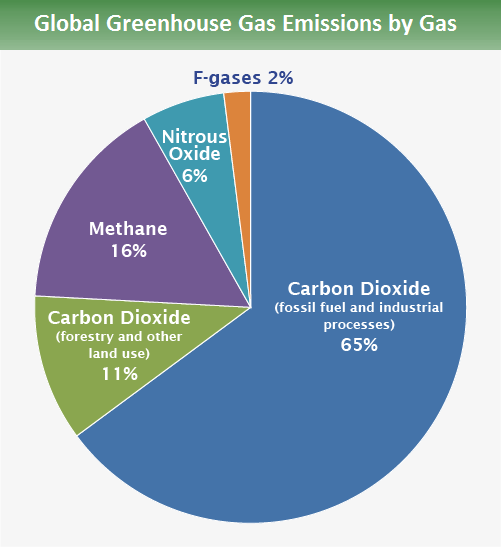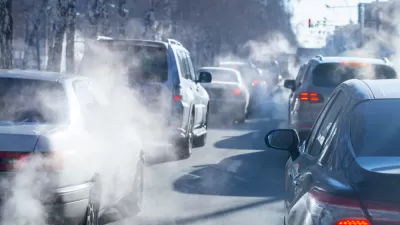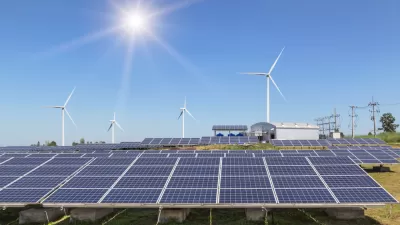An historic agreement reached by 170 global leaders in Kigali, Rwanda on October 15 to limit hydrofluorocarbons could have more of an impact on reducing climate change than the carbon emission agreement reached in Paris ten days earlier.
"The talks in Kigali, the capital of Rwanda, did not draw the same spotlight as the climate change accord forged in Paris last year," reports Coral Davenport, climate and energy reporter for The New York Times. "But the outcome could have an equal or even greater impact on efforts to slow the heating of the planet."
While the Paris agreement included pledges by nearly every country to cut emissions of heat-trapping carbon dioxide from the fossil fuels that power vehicles, electric plants and factories, the new Kigali deal has a single target: chemical coolants called hydrofluorocarbons, or HFCs, used in air-conditioners and refrigerators.
The agreement amends the 1987 Montreal Protocol on Substances that Deplete the Ozone Layer that protects the earth’s fragile ozone layer. HFCs and other fluorinated gases (F-gases) have "become increasingly used as replacements for ozone-depleting substances that are being phased out under the Clean Air Act," according to the Environmental Protection Agency.
"The amendment will allow the use of ozone-saving Montreal Protocol to phase-out HFCs, a set of 19 gases in the hydroflurocarbon family that are used extensively in the air-conditioning and refrigeration industry," reports Amitabh Sinha for The Indian Express. "HFCs are not ozone-depleting but are thousands of times more dangerous than carbon dioxide in causing global warming."
"By acting now, we’re avoiding up to a full half a degree centigrade of warming by the end of the century," stated the jubilant EPA Administrator, Gina McCarthy.
While we have seen many significant successes under President Obama’s leadership in fighting climate change, this day will unquestionably be remembered as one of the most important in our effort to save the one planet we have. It is truly an exciting time for all of us who have worked so hard to achieve this new level of success, and as head of the U.S. delegation, I could not be more delighted with the outcome of the negotiations and our collective resolve. The prospects for the future of our planet are bright.
"In general, fluorinated gases are the most potent and longest lasting type of greenhouse gases emitted by human activities," according to the EPA. While composing only a small percentage of greenhouse gas emissions, HFC "emissions are increasing by 10 to 15 percent on an annual basis globally," stated McCarthy.

Credit: Environmental Protection Agency: Source: IPCC (2014) Exit based on global emissions from 2010.
An Oct. 15 news release from the United Nations Environmental Programme expressed the accomplishment in similar words as did McCarthy.
The amendment to the Montreal Protocol on Substances that Deplete the Ozone Layer endorsed in Kigali today is the single largest contribution the world has made towards keeping the global temperature rise "well below" 2 degrees Celsius, a target agreed at the Paris climate conference last year.
Related on Planetizen:
World Leaders Tackle Climate Change, and Nearly Everyone Missed It, May 23, 2012
FULL STORY: Nations, Fighting Powerful Refrigerant That Warms Planet, Reach Landmark Deal

Maui's Vacation Rental Debate Turns Ugly
Verbal attacks, misinformation campaigns and fistfights plague a high-stakes debate to convert thousands of vacation rentals into long-term housing.

Planetizen Federal Action Tracker
A weekly monitor of how Trump’s orders and actions are impacting planners and planning in America.

In Urban Planning, AI Prompting Could be the New Design Thinking
Creativity has long been key to great urban design. What if we see AI as our new creative partner?

King County Supportive Housing Program Offers Hope for Unhoused Residents
The county is taking a ‘Housing First’ approach that prioritizes getting people into housing, then offering wraparound supportive services.

Researchers Use AI to Get Clearer Picture of US Housing
Analysts are using artificial intelligence to supercharge their research by allowing them to comb through data faster. Though these AI tools can be error prone, they save time and housing researchers are optimistic about the future.

Making Shared Micromobility More Inclusive
Cities and shared mobility system operators can do more to include people with disabilities in planning and operations, per a new report.
Urban Design for Planners 1: Software Tools
This six-course series explores essential urban design concepts using open source software and equips planners with the tools they need to participate fully in the urban design process.
Planning for Universal Design
Learn the tools for implementing Universal Design in planning regulations.
planning NEXT
Appalachian Highlands Housing Partners
Mpact (founded as Rail~Volution)
City of Camden Redevelopment Agency
City of Astoria
City of Portland
City of Laramie





























